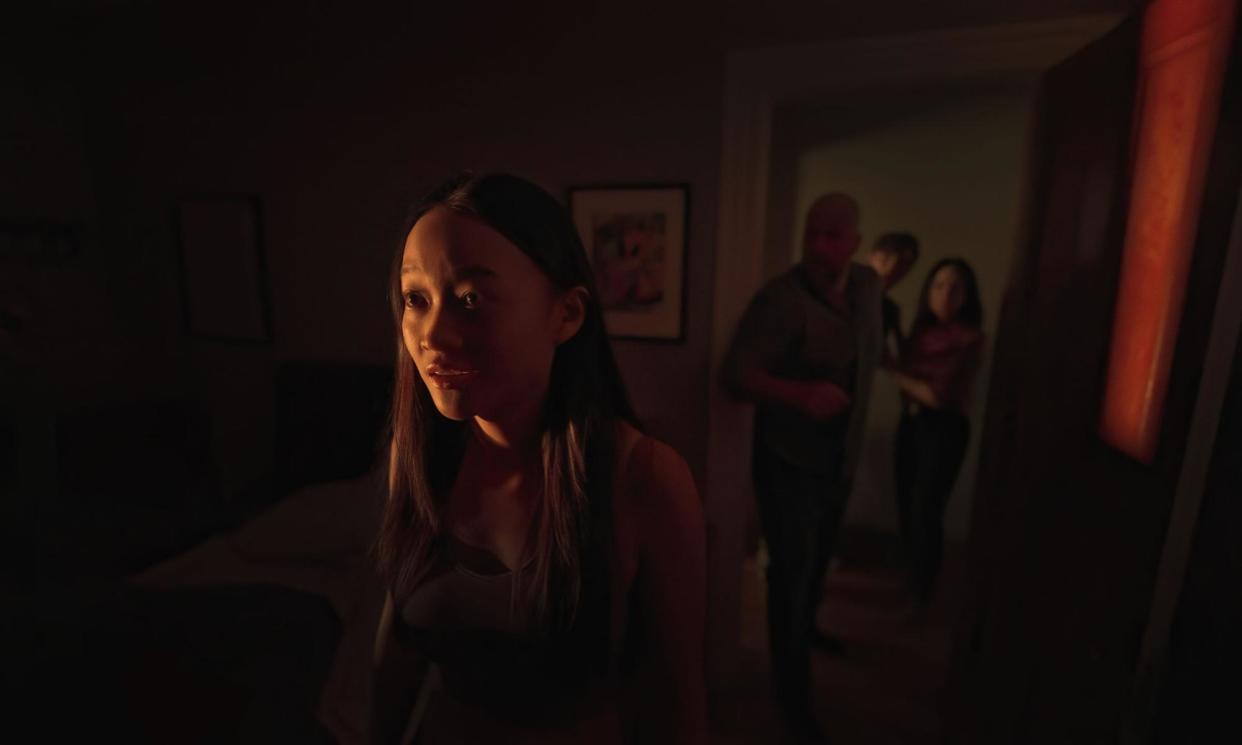Presence review – Steven Soderbergh’s intriguing ghost story experiment

For the majority of film-makers, the restrictions insisted by Covid became a stifling force and created a clear dividing line between those who could flourish in extremely prohibitive circumstances and those who could not. Steven Soderbergh, a director who has never allowed anything – from Oscar glory to blockbuster success – to kill his plucky spirit of invention, made one of the only essential pandemic movies with the maddeningly underseen thriller Kimi, a sleek and canny new-tech upgrade of a paranoid 70s thriller. He found a way, along with the screenwriter David Koepp, to maximise limitations and the two have smartly reunited for a project that carries on-paper similarities.
Related: Love Lies Bleeding review – gore, sex and 80s needle-drops can’t save forgettable thriller
Presence, a project shrouded in trademark mystery, shot over last summer with a waiver and now unveiling at Sundance, is another one-location genre exercise, playfully riffing on age-old tropes and allowing Soderbergh, as both director and cinematographer, the opportunity to experiment. This time he’s playing with the conventions of haunted house horror, his film told from the perspective of the ghost situated in a recently renovated house, new inhabitants moving in – a family, led by Lucy Liu and the This is Us actor Chris Sullivan with the newcomers Callina Liang and Eddy Maday as their teenage children. Like families often do in this genre, they’re arriving with excess baggage, tensions they hope will dissipate in a new home, a fresh start after a period of unease.
Soderbergh shoots a series of unbroken sequences as the presence witnesses the family fraying – a daughter grieving the loss of a friend, a mother prioritising her son as favourite, a father concerned about a potential legal battle – and we’re left to decipher what it all might mean and where we might be going. For a while, the experiment really works, questions over who the spirit might be remaining unanswered along with its intentions, clarification over what genre we’re even in remaining fascinatingly murky. Gliding around the house, Soderbergh has fun finding ways to involve us in the story, snippets and observations building up an unusual image of a family in trouble, from the micro to the macro, and some bold touches of music suggest that we’re going somewhere emotionally grand. But intrigue starts to waver as the picture, and genre, gets clearer.
The more we get to know the family, the harder it becomes to believe their dynamic, Koepp’s vision of division a little too heavy-handed; mother and son emerging as cartoonishly awful counterparts to the saintliness of father and daughter. The more relatable passive-aggression starts to get nastier but the powder keg fizzles rather than ignites and when a more conventional thriller plot comes into play, it’s equally hard to buy, the delicately dropped crumbs of mystery leading us to a surprisingly rote reveal. It’s half-hearted when it should be full-throated and by the end, it’s only the visual gimmick that separates this from standard genre fare.
As an experiment, it remains of interest, something to be filed away as a curious technical exercise, and Soderbergh operating at a lower level is still higher than many of his peers. Presence just never fully comes together in the way we hope, a ghost story haunted more by the possibility of what it could have been.
Presence is showing at the Sundance film festival and is seeking distribution
